Meet Shivani Surati
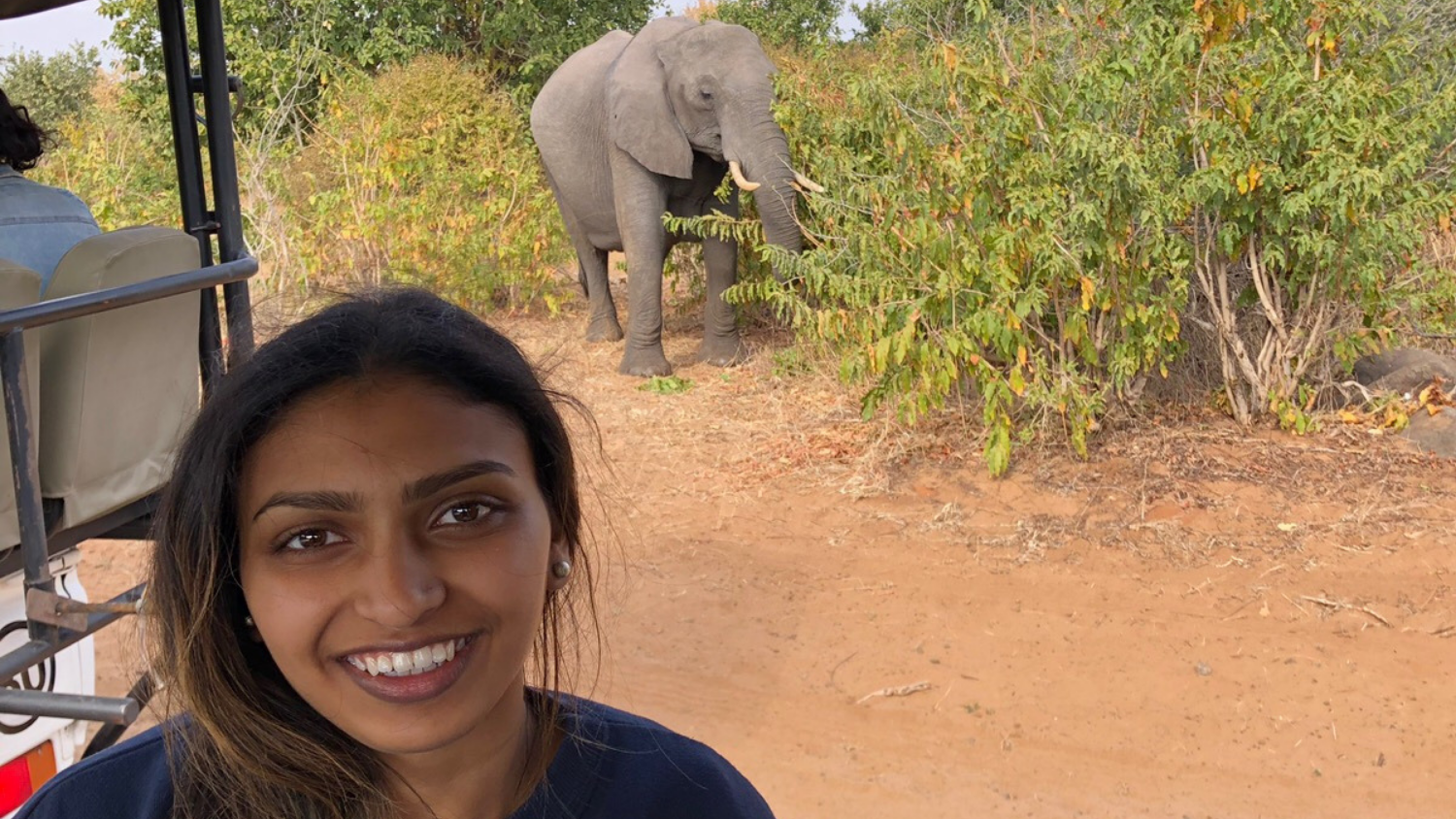
Program and Location:
Summer, Botswana: Public Health & Communication; Gaborone, Botswana
Major/Minor:
Major in Science, Technology and Society, Minor in Biological Sciences
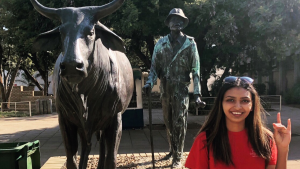
Why did you choose to study abroad?
As a first-generation college student, attending college has been a monumental step for myself and my family. Although it has not come without its challenges and rewards. In my sophomore year at NC State, I took a Global Public Health class with Dr. Casani. I absolutely loved this class and it inspired me to want to learn more about global public health. Soon after taking this class, I traveled to India to revisit my family origins. It was such a humbling experience, along with the academic interest I had in public health; I became really motivated pursue a career in public health. I began looking for opportunities on and off campus that would continue to inspire and build on my passions and interests. I decided to study abroad because I knew this opportunity would challenge and prepare me for a career in public health.
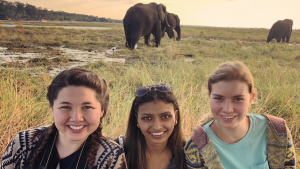
What did you learn about yourself?
The most important thing I learned from study abroad was understanding how to venture out of my comfort zone. Though this may seem obvious for study abroad, I went through a lot of uncomfortable situations and had to learn to overcome them. I think looking forward study abroad has taught me how to be comfortable with things that may at first seem uncomfortable and totally scary. I also learned how to be patient with myself as I adapt to a new culture and environment.
What was one of your favorite parts of your program?
My favorite part of my study abroad program was the visit to the Khwai community. This was also one of the most challenging part of my program. My study abroad program focused on public health and cultural communication. Part of understanding the public health system in Botswana was understanding what public health looks like in its most rural and isolated communities. To better understand the issues of these communities, our program director organized a trip to visit the Khwai community in Northern Botswana. Our journey to this community was very difficult, we drove 5 hours in open safari vehicles being pelted by sand. It doesn’t exactly make for the funnest trip, however the impact I got out of this experience will definitely stay with me forever. As hard as the journey was, it made me realize how difficult it is for this community to access health care. The community itself did not have a health clinic, and imagining the 5 hours for us to arrive is nothing when you realize that is what the Khwai people have to go through for their own health issues. This particular trip really connected my academic interest to personal experience, and it motivates me to want be more involved and aware of these issues.
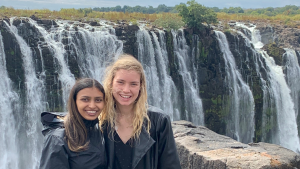
What advice do you have to future study abroad students?
My advice to future study abroad students is do not allow fear and doubt to prevent you from studying abroad. Study abroad is definitely a challenge, however NC State has all the tools and resources you need to succeed. Allow yourself to feel uncomfortable, be patient as you adapt to a new environment, and don’t be afraid to try something new!
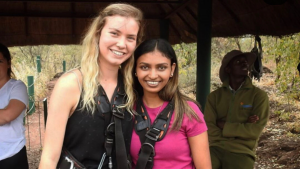
Were you surprised by anything during your time abroad?
I was most surprised by how personal this study abroad program was for me. I don’t think any class on NC State’s campus could have personally impacted me the way this program has. Part of this program was visiting the Khwai community in Northern Botswana. This was by far the most challenging part of our study abroad program, and I don’t think anything could have prepared me for it. In order to reach the Khwai community, we had to drive in open safari vehicles, as normal cars would get stuck in the dessert landscape. Because it was an open safari vehicle, we got pelted with sand on the journey arriving and departing the community. It was cold, painful, and overall not very pleasant. However, having this experience has truly shaped my understanding and perspective of what global health issues look like. As uncomfortable as it was for us to have made the journey, I don’t think there would be any better way for me to really understand and appreciate what we learned in class in connection to real life. This journey really put into perspective what public health issues look like in rural and isolated communities in Botswana. The particular community we visited did not have a health clinic or any health professionals. Imagining how difficult the journey was, I imagine how it impacts the Khwai people, especially the women. The study abroad program highlights the HIV/AIDS epidemic in Botswana, and we learned that pregnant women are most at risk. So, this excursion really was impactful in that I was shocked to realize how rural and isolated these communities were. Though Botswana’s biggest industry is tourism and the Khwai community is located on a game reserve that should benefit from the booming industry. There are so many health and social issues that are neglected, and this doesn’t just affect their communities. Overcoming these issues are key to ensuring a safe and secured future for all communities in our globalized world.
Would you do it again?
Absolutely! This trip has been so inspiring!


